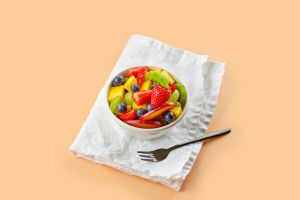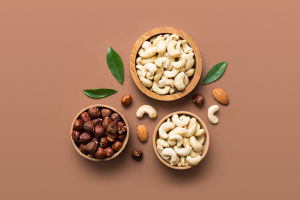Cheesecake is one of those desserts that can easily impress anyone. With its creamy texture, slightly tangy flavor, and smooth finish, cheesecake can take any special occasion or dinner to the next level. Whether we're making it for a birthday, a holiday, or just because, learning how to make a perfect cheesecake is a skill worth mastering.
In this guide, we will walk you through every step to create a cheesecake that is delicious and beautiful—no matter your skill level in the kitchen.
Choosing the Right Ingredients
The first step in making the perfect cheesecake is to gather the right ingredients. The basic components are quite simple, but the quality of the ingredients can make all the difference.
• Cream cheese: This is the star of the cheesecake. Use full-fat cream cheese for the best texture and flavor. Lower-fat options may not give the cheesecake the same rich and creamy texture.
• Sugar: Granulated sugar is typically used in cheesecakes. We recommend using the right amount so it balances the richness of the cream cheese without overpowering it.
• Eggs: Eggs help to set the cheesecake and give it structure. It's important to use eggs at room temperature to ensure they mix evenly and avoid creating lumps.
• Crust ingredients: A traditional graham biscuit crust works perfectly for most cheesecakes, but you can experiment with other crusts like cookie crumbs or even nuts.
• Sour cream: Adding sour cream to the batter creates a smooth and tangy finish. It also helps to keep the cheesecake moist.
Preparing the Crust
Before we make the cheesecake filling, we'll need to prepare the crust. Start by preheating the oven to 325°F (163°C). Combine your crust ingredients—typically crushed graham crackers, melted butter, and sugar—and press the mixture firmly into the bottom of a springform pan.
Once the crust is in place, bake it for about 10 minutes. This helps it set and gives it that perfect golden-brown color. After baking, allow the crust to cool while we work on the filling.
Making the Filling
The cheesecake filling is where the magic happens. To create a smooth, creamy texture, start by beating the cream cheese until it's soft and free of lumps. This is crucial for the texture of your cheesecake. Then, add sugar and beat again until it's smooth.
Next, add the eggs one at a time, mixing well after each addition. It's important not to overmix the eggs as that can cause cracks in the cheesecake when it bakes. After the eggs are incorporated, stir in sour cream, vanilla extract, and any other flavorings you may want to add.
Once the filling is smooth, pour it over the cooled crust in the springform pan. Tap the pan gently on the counter to remove any air bubbles. This step will help avoid cracks while baking.
Baking the Cheesecake
Baking the cheesecake is the most delicate part of the process. The key to a perfectly baked cheesecake is low and slow cooking. Bake at 325°F (163°C) for 45-55 minutes. The cheesecake should be set around the edges but still slightly wobbly in the center.
To ensure it cooks evenly and prevents cracks, place the cheesecake pan on a baking sheet and bake it in the center of the oven. We can also try the water bath method, which involves placing the cheesecake pan inside a larger pan filled with hot water. This creates a humid environment and helps the cheesecake cook slowly and evenly.
Once baked, let the cheesecake cool to room temperature before placing it in the fridge to chill for at least four hours—or ideally overnight.
Finishing Touches
Once the cheesecake has chilled, it's time to add the finishing touches. We can top it with fruit, a drizzle of chocolate, or even a caramel topping. The possibilities are endless, so we can get creative with garnishes that complement the rich flavor of the cheesecake.
Before serving, run a tool along the edge of the pan to loosen the cheesecake. Open the springform pan and transfer the cheesecake to a serving platter.
Tips for the Perfect Cheesecake
Here are a few additional tips to make sure our cheesecake turns out perfectly every time:
• Room temperature ingredients: Make sure the cream cheese and eggs are at room temperature before you start. This helps the ingredients blend together smoothly.
• Avoid overmixing: Overmixing the filling can incorporate too much air, which can lead to cracks in the cheesecake.
• Don't rush cooling: Let the cheesecake cool slowly and then chill in the refrigerator for several hours before serving. This will help it firm up and hold its shape.
• Split prevention: If you notice small cracks on the surface of your cheesecake, you can cover them with a layer of sour cream or fruit topping.
Making a perfect cheesecake doesn't have to be difficult. By following these simple steps, we can create a rich, creamy, and decadent dessert that is sure to wow everyone. Whether we're preparing it for a special occasion or a casual treat, mastering the art of cheesecake will always impress.
So grab your ingredients, preheat the oven, and let's get baking! With a little patience and the right techniques, we'll have a cheesecake that's as beautiful as it is delicious.


